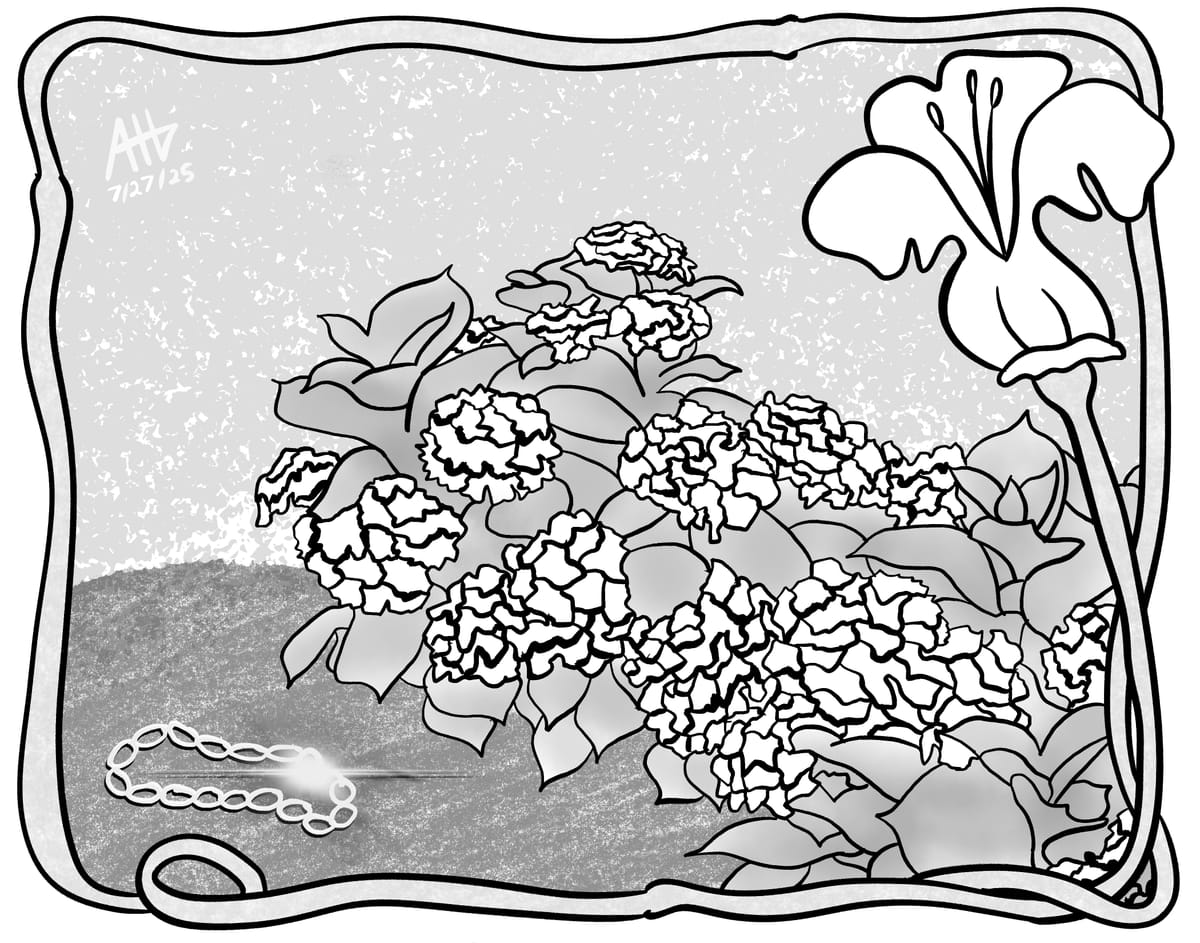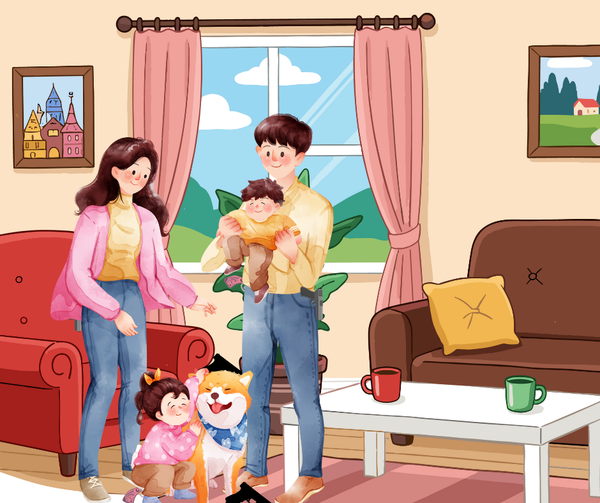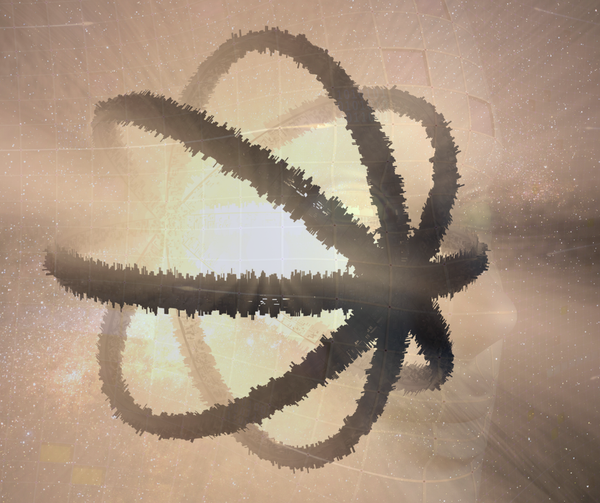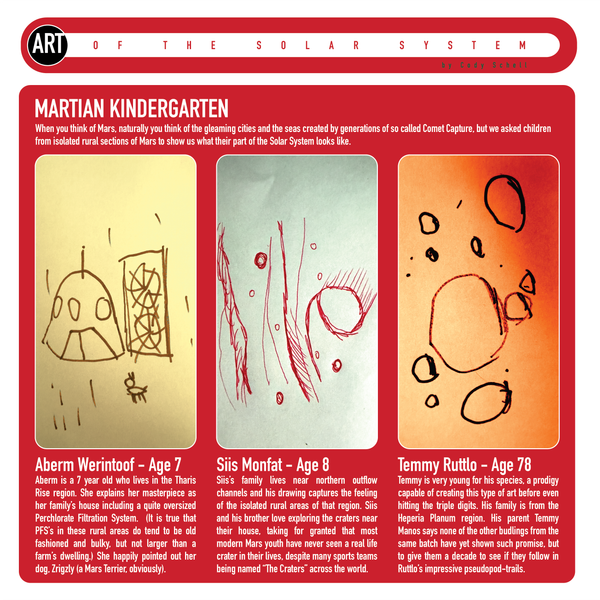The Echo Gardener

by Demakatso May
Art by Arnold T. Blumberg
When the first echo bloom appeared in Clara’s garden, she mistook it for a weed. Its stem was knotted and gray, and its petals were translucent like moth wings. She nearly uprooted it, but something—a flicker of movement in the corner of her eye, a hum like a distant radio—made her pause.
By morning, the flower had grown to the size of her fist. When she leaned in, she heard her mother’s voice.
“Clara, honey, don’t forget to water the hydrangeas.”
Her mother had been dead for seven years.
Clara’s garden had always been ordinary marigolds, tomatoes, and a stubborn rosemary bush. But the echo blooms defied reason. They sprouted overnight, their roots tangling in soil that shimmered faintly, like oil on water. Each flower held a voice. Not memories, but moments: snippets of conversations she’d long forgotten or perhaps never heard at all.
The second bloom whispered in her father’s graveled tone, “She’s got your stubbornness, Lila.” Her mother’s laugh followed, bright and sharp as a knife. Clara dug her nails into her palms until the echoes faded.
The florist down the road, an old man named Emil, recognized the plants. “Echo-gardeners,” he said, squinting at her sketch. “Rare. Feed them silence, and they’ll feed you truth.”
“Truth?” Clara frowned.
“Depends on who’s listening.”
She left with a bag of bone meal and a warning: “Don’t ask them questions. They answer anyway.”
By week’s end, her garden was a chorus. The blooms replayed her brother’s teenage rants about band practice, her ex-husband’s half-hearted apologies, even her own voice “I’m fine, really,” layered over each other like a discordant hymn.
But one flower remained mute, a bulbous bud the color of storm clouds. Clara knelt beside it daily, offering silence as Emil instructed. Still, it refused to speak.
The mute bloom unfurled on a Tuesday. Clara sat cross-legged in the dirt, her knees aching, when a stranger’s voice spilled out. A man’s voice, weary and soft.
“I’m sorry I never told you, Clara.”
She froze. The voice wasn’t her father’s or her brother’s. It wavered, tinged with an accent she couldn’t place.
“You deserved to know why I left.”
Clara didn’t sleep that night. She Googled, called old friends, even dug through her mother’s journals. Nothing. The echo persisted, looping fragments of a confession meant for her but never delivered.
“It wasn’t the drinking. It was the fear.”
“Your laugh reminded me of her.”
“I planted roses the day you were born.”
Emil found her hacking at the soil with a trowel, tears streaking her cheeks. “Trying to kill them won’t work,” he said. “They grow where they’re needed.”
“I don’t need this,” she snapped.
He studied the mute bloom, now pulsing faintly. “Maybe it’s not yours.”
Clara’s mother had owned the house before her. The garden, the hydrangeas, the rusted swing set—all hers. That night, Clara dragged a box of her mother’s things from the attic. Buried beneath recipe cards and moth-eaten scarves was a sealed envelope.
To Clara, in a shaky script she didn’t recognize.
Inside, a Polaroid of her mother, young and grinning, arm-in-arm with a man who wasn’t her father. On the back, a note:
Ask me about Daniel.
The mute bloom sang for the last time at dawn.
“Tell Clara I’m proud of her. Tell her I’m sorry.”
When the petals wilted, Clara sifted the soil until her fingers brushed metal—a locket, tarnished and engraved. Inside, two faces: her mother and the stranger, forever 25.
She buried the locket beneath the hydrangeas. Above it, a new bud emerged, pale green and silent.
Clara waited.




